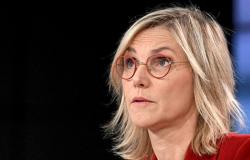Since the beginning of October, Nigeria has been facing a new surge in the price of gasoline, with a marked increase in the country’s main cities. In Lagos, the economic capital, a liter of PMS (Premium Motor Spirit, gasoline) rose from 855 to 998 naira ($0.62), an increase of 17%. The federal capital, Abuja, as well as Kano, the main urban center in the north, recorded an even higher price, reaching 1,030 naira per liter ($0.64).
End of subsidies: a shock for consumers
This increase follows the removal of fuel subsidies, a controversial measure taken by President Bola Ahmed Tinubu upon his coming to power in May 2023. This policy, aimed at reducing the financial burden weighing on the State, caused a tripling of the cost of petrol, which sold for less than 200 naira per liter before the reform. The government hopes to attract foreign investment in the long term, but the immediate repercussions on purchasing power are severe.
Economic and social consequences
With inflation reaching more than 30%, its highest level in three decades, the economic situation has deteriorated significantly. Rising fuel prices have a direct impact on transportation costs and, consequently, on the prices of food and other consumer goods. “Our bosses don’t increase our salaries, and we pay for transportation every day. Food prices will also increase,” explains Emem Bob, a 24-year-old salesperson interviewed outside a Lagos gas station.
Limited protests and call for patience
Despite calls for demonstrations launched by various political and civil society organizations, the mobilizations on October 1, the Nigerian national holiday, did not bring together a significant crowd. President Tinubu took the opportunity to call on Nigerians to be patient, while emphasizing the need for reforms to bring the country out of this crisis.
Uncertainties about the future
The national oil company NNPC (Nigerian National Petroleum Corporation) has not yet commented on this new increase. Experts believe that as long as economic tensions persist, further price adjustments could follow, making the situation even more difficult for Nigerian households. The country, which already has a high unemployment rate and endemic poverty, risks seeing social discontent grow in the months to come.





